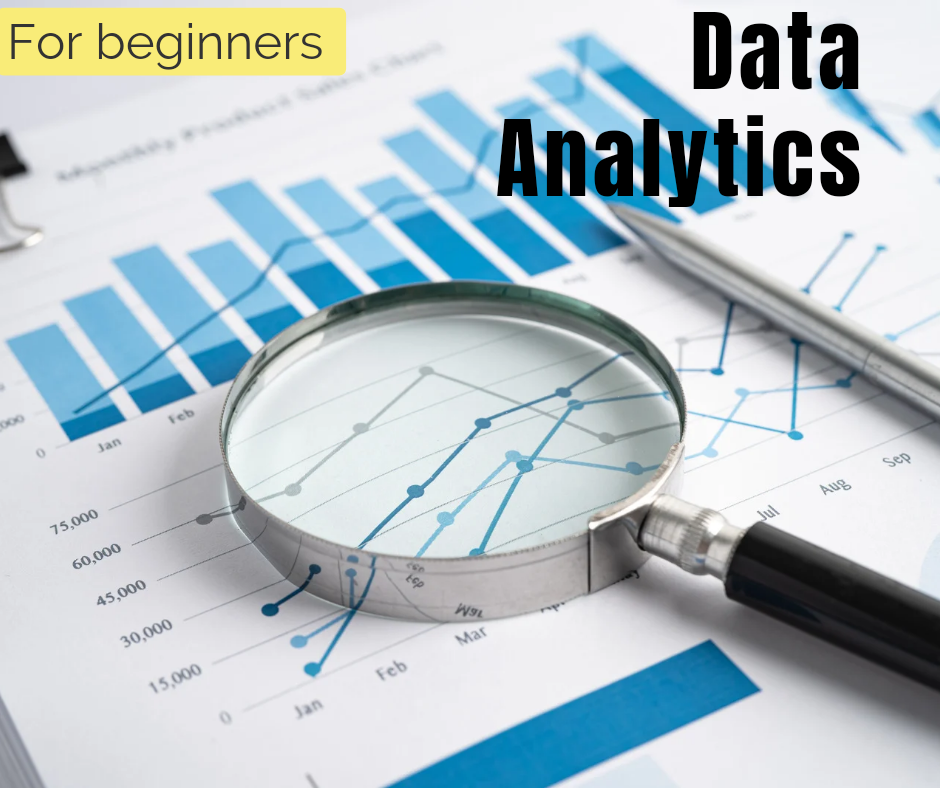About this course
What you'll learn.
Understanding Data Analytics: Learn the basics of data analytics, including its importance, applications, and common techniques for analyzing and interpreting data.
Introduction to Data Tools: Start exploring data analysis tools like Microsoft Excel or Google Sheets for basic data manipulation, visualization, and analysis. Learn about functions, formulas, and charting features.
Data Visualization: Understand the principles of data visualization and how to create effective charts and graphs to communicate insights. Explore tools like Tableau, Power BI, or Python libraries like Matplotlib and Seaborn for advanced visualization.
Introduction to Programming: Learn the basics of programming using languages like Python or R, which are commonly used in data analytics. Focus on concepts like variables, data types, control structures, functions, and libraries.
Data Cleaning and Preprocessing: Gain skills in data cleaning and preprocessing techniques to ensure data quality and consistency. Learn how to handle missing values, remove duplicates, and format data for analysis.
Exploratory Data Analysis (EDA): Dive into exploratory data analysis techniques to gain insights and uncover patterns in datasets. Learn how to summarize data, identify trends, and visualize relationships between variables.
Statistical Analysis: Explore statistical analysis techniques such as hypothesis testing, regression analysis, and correlation analysis to make data-driven decisions and draw meaningful conclusions from data.
Machine Learning Basics: Get introduced to machine learning concepts and algorithms for predictive analytics. Learn about supervised learning (e.g., regression, classification) and unsupervised learning (e.g., clustering, dimensionality reduction).
Practical Projects and Case Studies: Apply your skills to real-world data analytics projects and case studies. Practice analyzing datasets, drawing insights, and presenting findings to stakeholders.
Continuous Learning and Practice: Stay updated with the latest trends, tools, and techniques in data analytics. Engage in our community forums to expand your knowledge and skills.
FAQ
What is data analytics?
Data analytics is the process of examining large datasets to uncover patterns, trends, correlations, and insights that can inform decision-making and drive business strategies.
Why is data analytics important?
Data analytics helps organizations make data-driven decisions, improve efficiency, identify opportunities for growth, optimize processes, enhance customer experiences, and gain a competitive edge in the market.
What are the key skills needed for data analytics?
Key skills include proficiency in statistical analysis, data visualization, programming (e.g., Python, R), data manipulation, problem-solving, critical thinking, and domain knowledge in relevant industries.
What are the different types of data analytics?
There are three main types: descriptive analytics (summarizing historical data), predictive analytics (forecasting future outcomes), and prescriptive analytics (providing recommendations for actions).
What tools are commonly used in data analytics?
Common tools include programming languages like Python and R, data visualization tools like Tableau and Power BI, statistical software like SPSS and SAS, and database querying languages like SQL.
How do I become a data analyst?
To become a data analyst, sign up for a Data Analytics course with Learn Skills Africa our courses come with practical experience through collaborative learning to build your skills and knowledge.
What industries use data analytics?
Virtually every industry utilizes data analytics, including finance, healthcare, retail, marketing, e-commerce, manufacturing, telecommunications, and technology.
What career opportunities are available in data Analytics?
Career opportunities include data analyst, business analyst, data scientist, data engineer, data architect, data visualization specialist, and machine learning engineer. There are also roles in academia, consulting, and research.
Comments (0)
CURRICULUM
3 Parts
- 11:00 Hr
BASIC CURRICULUM
INTRODUCTION TO DATA ANALYIS,POWER BI,EXCEL ,STORY TELLING AND A MINI PROJECT.
360 Min
Attachments:
CLASS ATTENDANCE LINK
This link gives you access to the class
2:00 Hours
3 Jun 2024 | 12:00
Live Class
3:00 Hours
24 Feb 2025 | 18:00

0
0 Reviews




